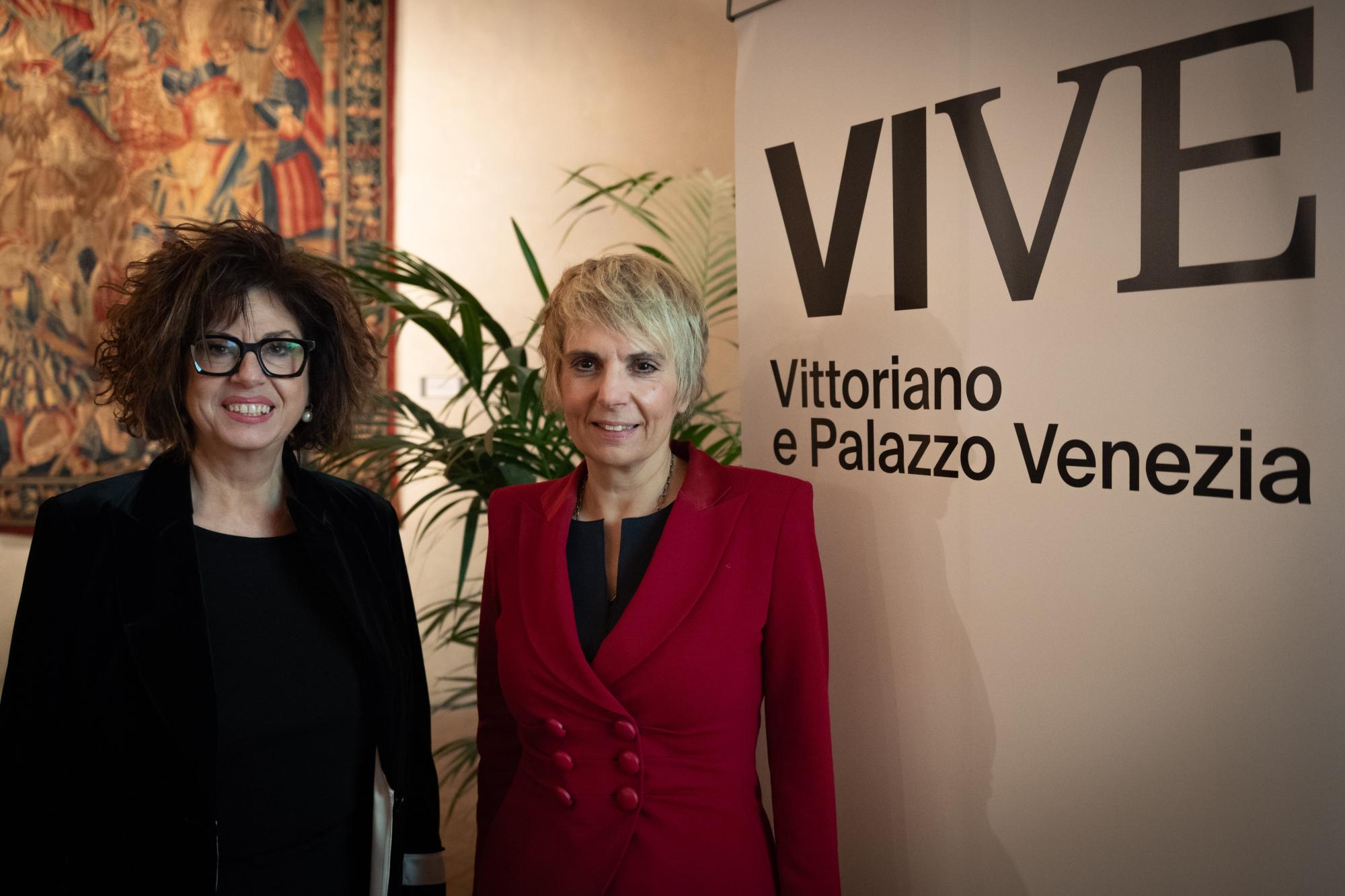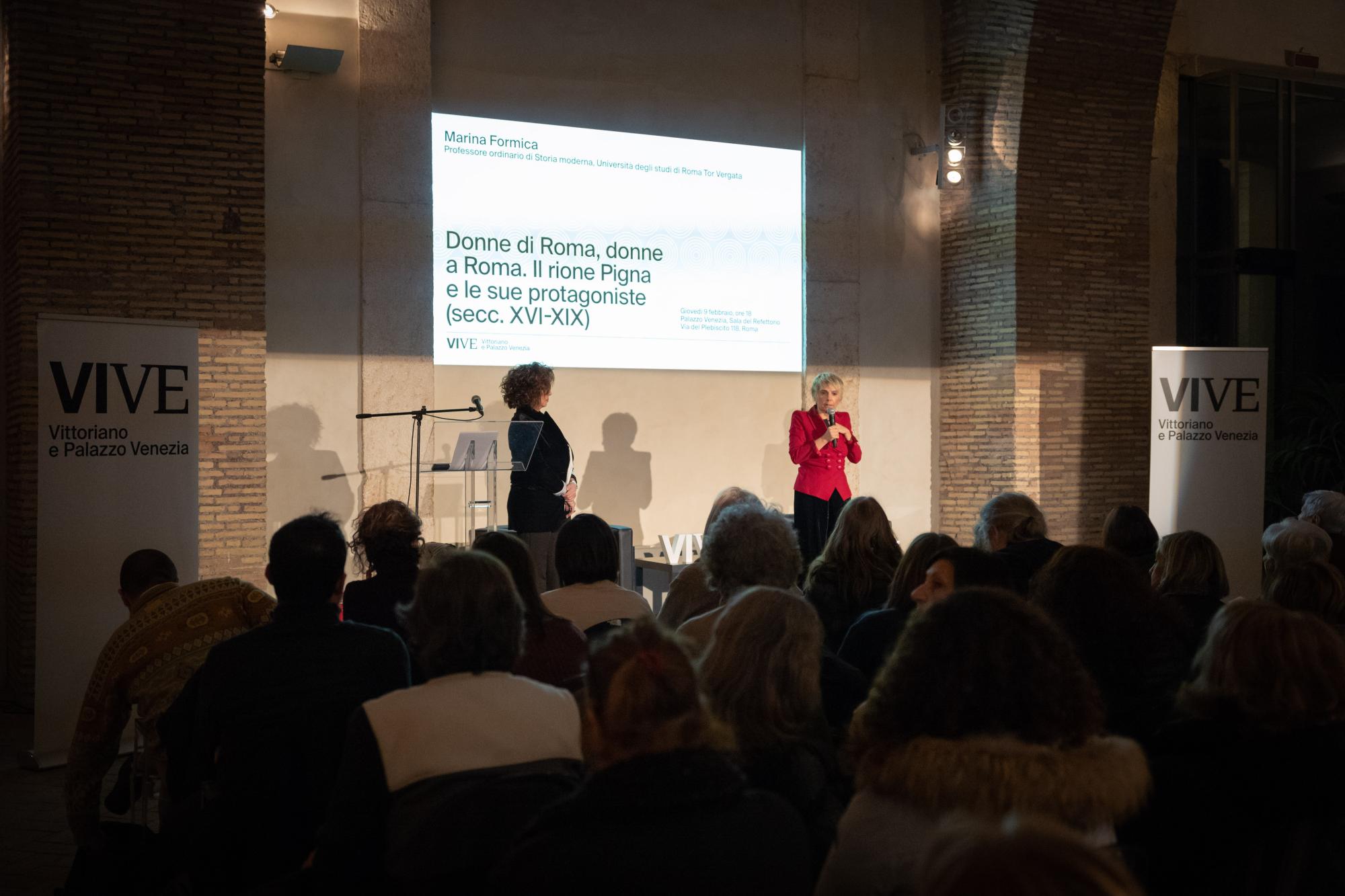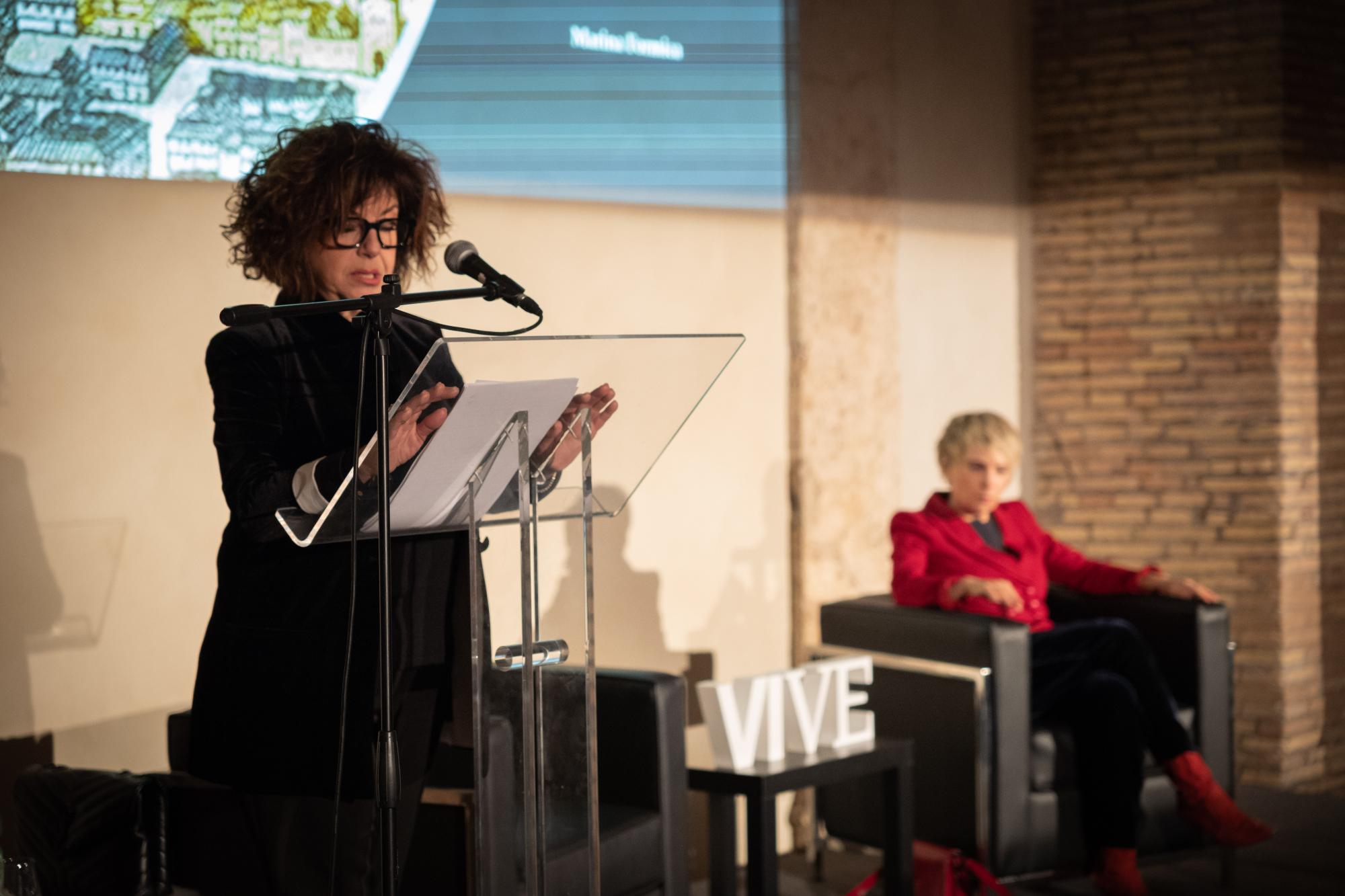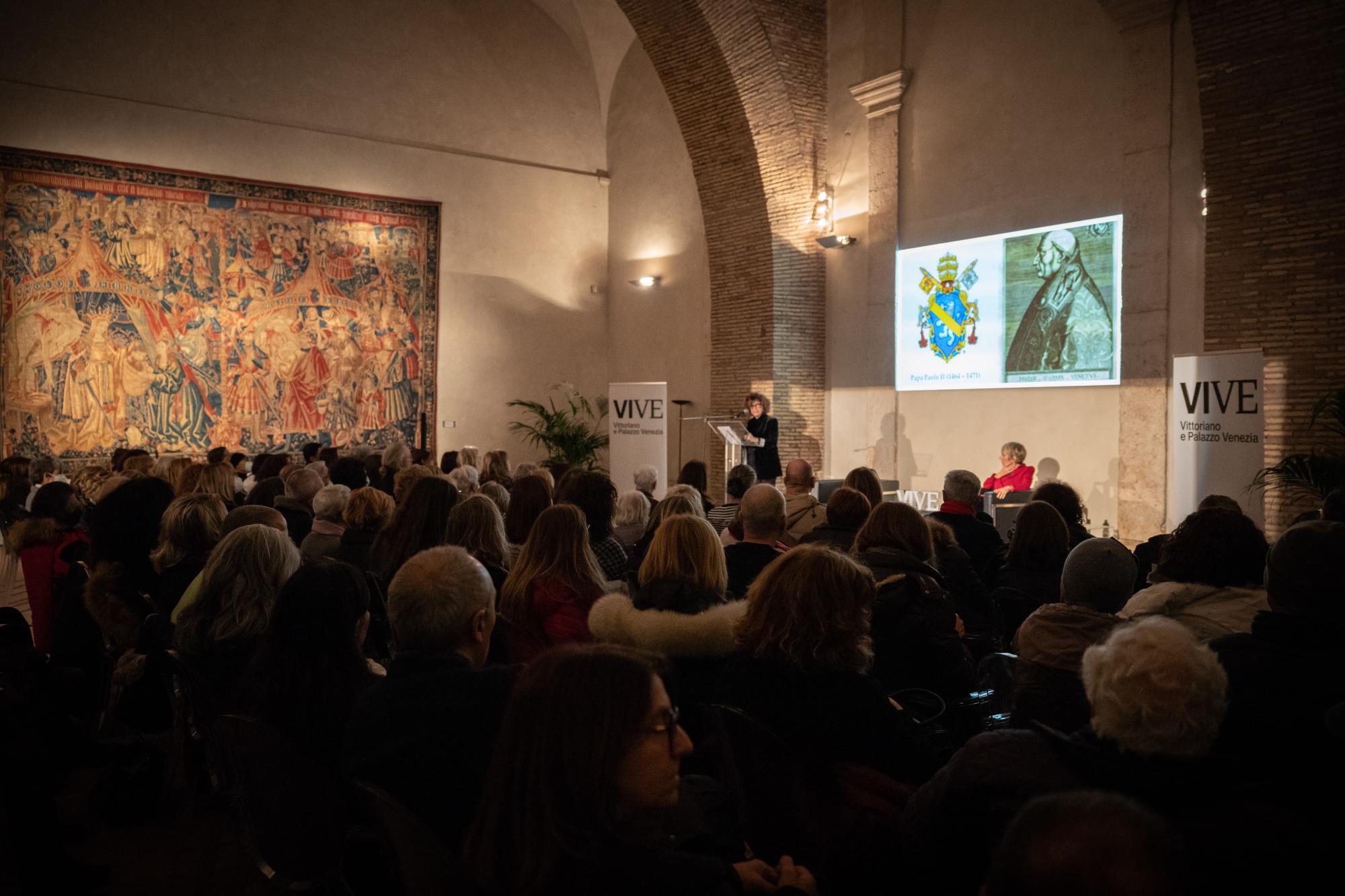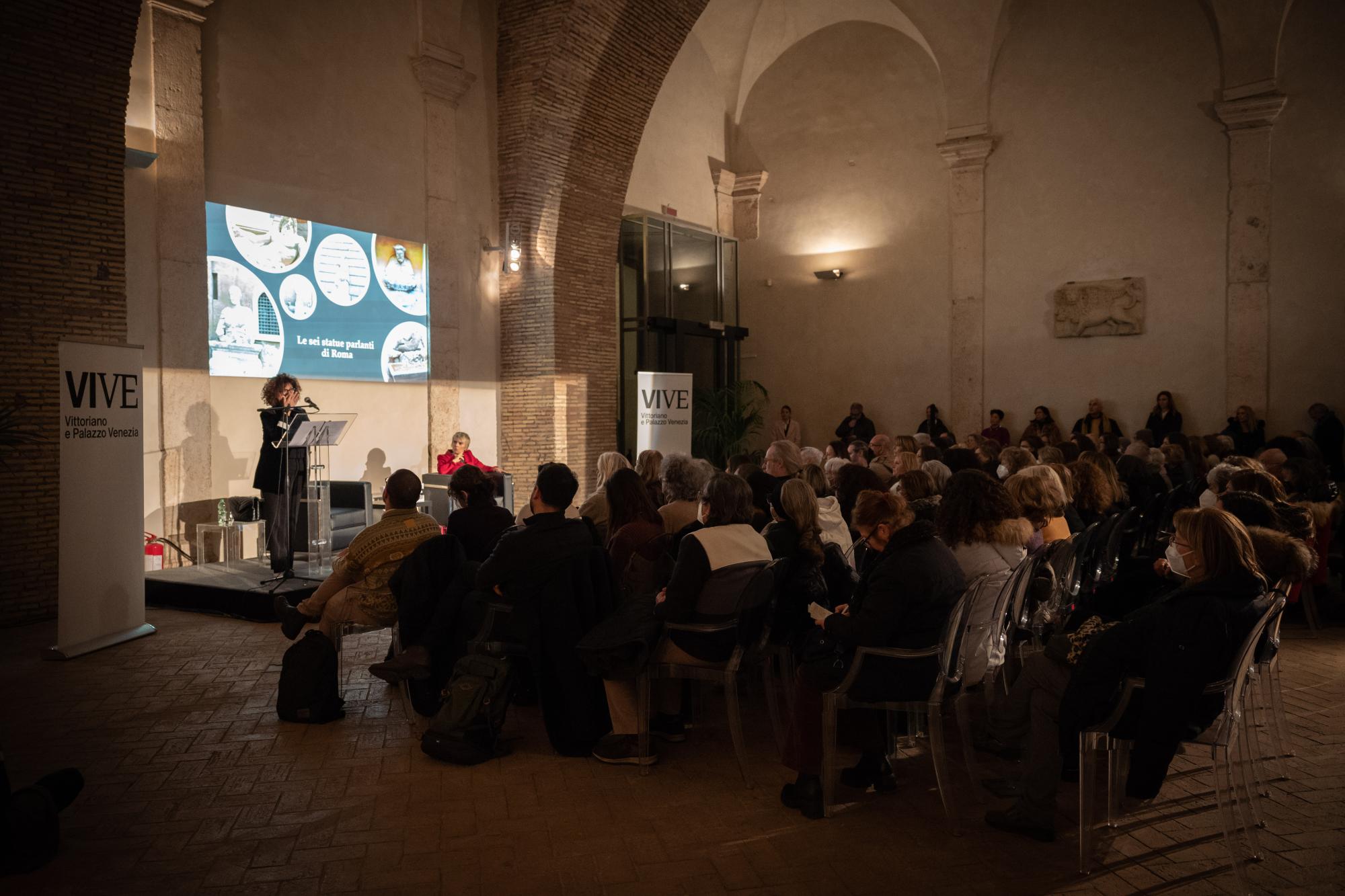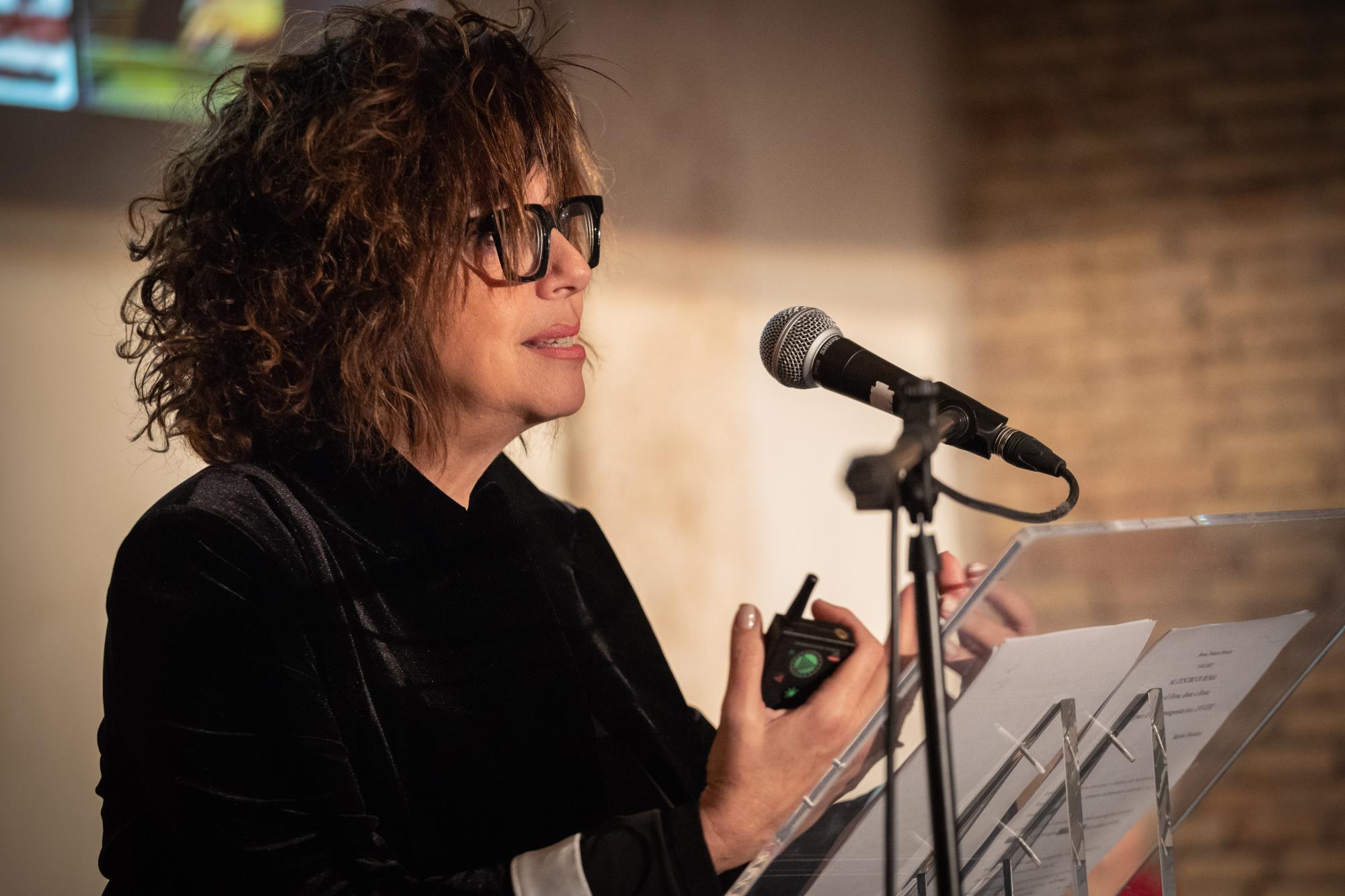SERIES: One square, so many stories - Under the aegis of Edith Gabrielli, director of VIVE
SPEAKER: Marina Formica
DATE: Thursday 9 February, 6 pm
PLACE: Sala del Refettorio
This talk offers food for thought on the social structure of the Pigna quarter in the long modern era and more specifically on the female presence in a central area become more important after Pope Paul II’s decision to make today’s Palazzo Venezia the seat of papal power.
Making the most of the latest historiographic acquisitions, it will show that the vision of Rome as a “male” city was by this time outdated. It focuses on the activities of the women living there to highlight the multi-ethnic components of a population strongly marked by immigration (paupers, tertiaries, pilgrims and prostitutes), as too by the presence of Roman and Romanised noblewomen. After examining the 16th-17th centuries, it will illustrate the dynamism of the capital city in the 18th and 19th centuries. Looking at the French experiences (the 1798-1799 Republic and Napoleonic period) and extending the gaze to the final years of papal Rome, it will also highlight the characteristics of an area with a strong political and cultural drive thanks precisely to the role played by certain female-managed spaces (Palazzo Bonaparte, Palazzo Caetani).

